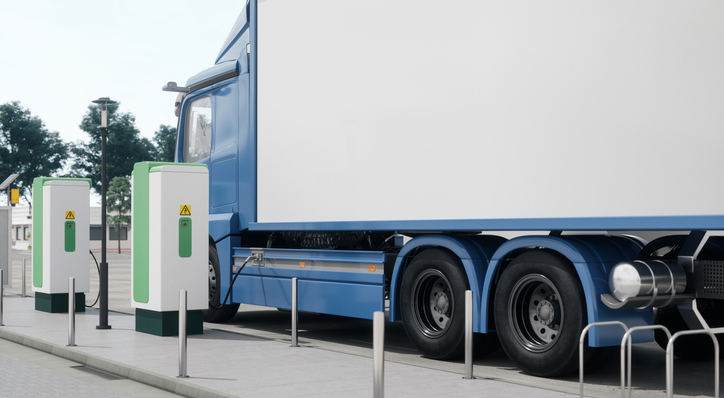According to Markets.us, sales of commercial electric vehicles like trucks and vans will grow 31% per year between now and 2032 as more states pass laws requiring their use. Due to their environmentally friendly emissions, these vehicles will make up a growing share of trucking companies’ fleets over the next decade.
However, not all of the changes will be positive. Electric trucks present risks that may lead to catastrophic accidents and soaring auto insurance rates. For now, insurers have not been charging more to insure electric big rigs and other electric commercial vehicles, but that could change in the future.
Heightened risks
First, the battery pack makes trucks heavier than they ordinarily would be. The head of the U.S. National Transportation Safety Board warned in a January 2023 speech of the potential damage these trucks could do in a collision with lighter vehicles.
For example, the battery pack in a GMC Hummer, which is much smaller than any vehicle a trucking company would use, outweighs an entire gasoline-powered Honda Civic. In addition, electric vehicles send power instantly to their wheels. This means they can accelerate much faster than conventional vehicles.
It’s not hard to imagine the injuries and damage that could result if a tractor-trailer with a 4,000-pound battery collided with a sedan at 70 mph.
The batteries are also flammable. In 2022, the New York City Fire Department responded to more than 200 lithium ion battery fires. Six people died. And these were batteries in electric bikes and scooters.
“It’s a tremendous volume of fire as soon as it happens,” the fire commissioner told reporters, “and it’s very difficult to extinguish and so it’s particularly dangerous.”
The executive director of Underwriters Laboratory’s Fire Safety Research Institute said, “Lithium batteries are generally safe and unlikely to fail, but only so long as there are no defects and the batteries are not damaged or mistreated.”
In a high-speed collision involving a delivery truck, the batteries are very likely to be mistreated. Also, the exposure doesn’t stop when the vehicle does. Fires can occur during battery charging.
There are also cybers security concerns. Everything from the truck’s control system to the charging station to the electric grid itself is vulnerable to attack by cyber criminals.
When an electric truck is damaged, it may take some time for repairs. Since the COVID-19 pandemic, shortages of parts and qualified mechanics have produced lengthened repair times for conventional trucks.
Additionally, very few mechanics can work on these vehicles, and to keep them under warranty, they usually have to be fixed by the dealer or an authorized repair facility.
In addition to the inconvenience when trucks are out of commission, trucking companies will lose income.
The takeaway
The result of all these risks is that insurance premiums may rise sharply if electric truck claims turn out to be costlier than anticipated.
The things insurance pays for — medical care, lawsuit settlements, property damage, damage to the vehicle itself, loss of business income — are set to become vastly more expensive.
Trucking companies should work with us as we understand their industry. We understand the insurance markets and can guide your company to insurance carriers who are the right fit for you.
Until insurers have several years of statistics from which to learn from and evaluate their risks, the road ahead for truckers using electric vehicles may be very bumpy.

